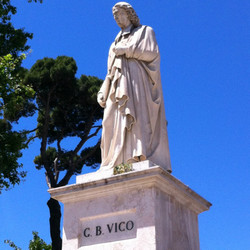Theories of the past influence psychology of the future
Psychology is an ever-growing field, especially when it comes to understanding the human psyche without being too reductionist. One notable 18th century Italian philosopher, Giambattista Vico, thought outside the box in this respect, seeing psychology not in Cartesian terms but as part of a unity that also included linguistics, philosophy, philology and epistemology. The EU-funded EPICS (Epistemology in psychological science, the heritage of Giambattista Vico and the cultural psychology) project examined his unified theory of the human psyche to investigate new directions for innovating epistemology, theory and methodology of qualitative psychology. The project team reconstructed Vico's most notable influences, producing several publications that link his ideas to the development of 19th and 20th century psychology. It looked at advancing the epistemology of psychology based on Vico's theory in contemporary research. To achieve its aims, EPICS investigated the relationship between methodology, theory building and generalisation in psychology. It showed how psychological processes take place while considering the whole, including cognition, affection and action. The project looked at experiencing as a developmental process, considering psychological phenomena a continuous production of novelty related to life experiences rather than an alternation of activation and equilibrium states. This presents psychology in a way that cannot be reduced to simple elements such as language or behaviour, prompting academics to rethink current methodologies in the field. In addition, the project looked at imagination through Vico's research, considering it a fundamental higher psychological function devoted to the semiotic manipulation of complex wholes of iconic and linguistic signs. These new perspectives resulted in 10 peer-reviewed articles, 10 peer-reviewed book chapters, 2 edited books and 19 international events, including workshops, conference presentations, lectures and symposia. Revisiting Vico's important work and conclusions, which have often been overlooked by the academic world, could ultimately help refine the field. EPICS project resulted in a new long-term research project on imagination as higher psychological function that has been initiated at the Centre for Cultural Psychology at Aalborg University(opens in new window) and in the establishment of an international winter school on 'The Method of Imagination'.







